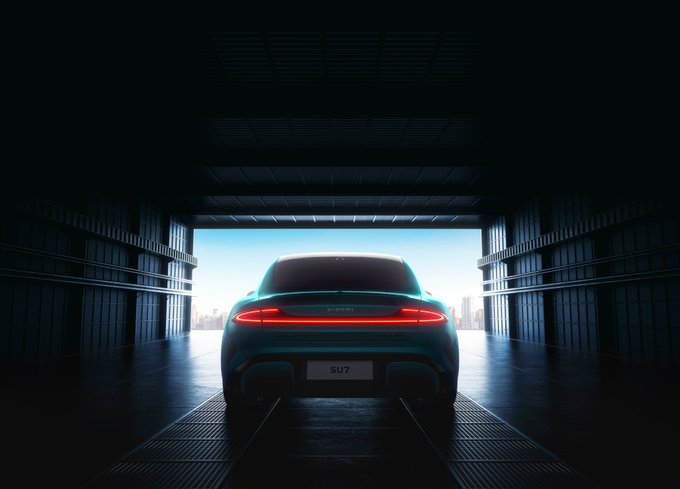Shortly after the debut of its inaugural electric vehicle (EV), Chinese smartphone manufacturer Xiaomi has informed buyers that they could face a delivery wait of up to six months for their cars.
Images circulating on Chinese social media reveal the company notifying customers that the delivery of the SU7 Max could take up to 27 weeks. Earlier, the company announced that pre-orders had reached 88,898 within the first 24 hours of opening orders on Thursday. Despite a request for comment from the BBC, Xiaomi did not provide an immediate response.
As the third-largest seller of smartphones globally, with a market share of approximately 12%, Xiaomi is entering the electric vehicle (EV) market to compete with rivals like Tesla and BYD in the world’s largest automobile market.
The standard SU7 model is priced at 215,900 yuan ($29,872; £23,663), while the Max version costs 299,900 yuan. In comparison, Tesla’s Model 3 starts at 245,900 yuan in China.
The SU7, often compared to Porsche’s Taycan and Panamera models, boasts a minimum range of 700km (435 miles), surpassing the Tesla Model 3’s range of 567km.
To promote the SU7, Xiaomi introduced special editions called the Founder’s Edition, which include complimentary gifts such as refrigerators. In a Weibo post on Sunday, the company’s CEO, Lei Jun, announced a second round of sales for the Founder’s Edition.
Xiaomi aims to attract its existing customer base by integrating the SU7 with its phones, laptops, and other devices through a shared operating system.
Xiaomi’s electric vehicles (EVs) are manufactured by a subsidiary of the state-owned car manufacturer BAIC Group at a production facility in Beijing, capable of producing up to 200,000 vehicles annually.
However, this development occurs amidst a global slowdown in EV sales, leading to a price war. Tesla, led by billionaire Elon Musk, has significantly reduced the prices of its cars in China in recent months, following the lead of local competitors such as the world’s leading EV maker, BYD, which have also slashed prices.
This situation highlights the challenges faced by technology companies seeking to enter the electric car market. For instance, Apple, the maker of the iPhone, reportedly canceled its plans to develop an EV last month.
While BYD reported record annual profits last week, it noted a slowdown in growth towards the end of the previous year. Additionally, Shanghai-based electric car manufacturer Nio revised down its first-quarter delivery forecast due to reduced consumer spending amid China’s weakening economic growth.
Tesla, the American EV giant, is set to announce its delivery figures for the first three months of 2024 this week. Tesla’s shares declined by nearly 30% in the first quarter.
Xiaomi has announced intentions to invest $10 billion (£7.9bn) in its vehicle business over the next decade.



